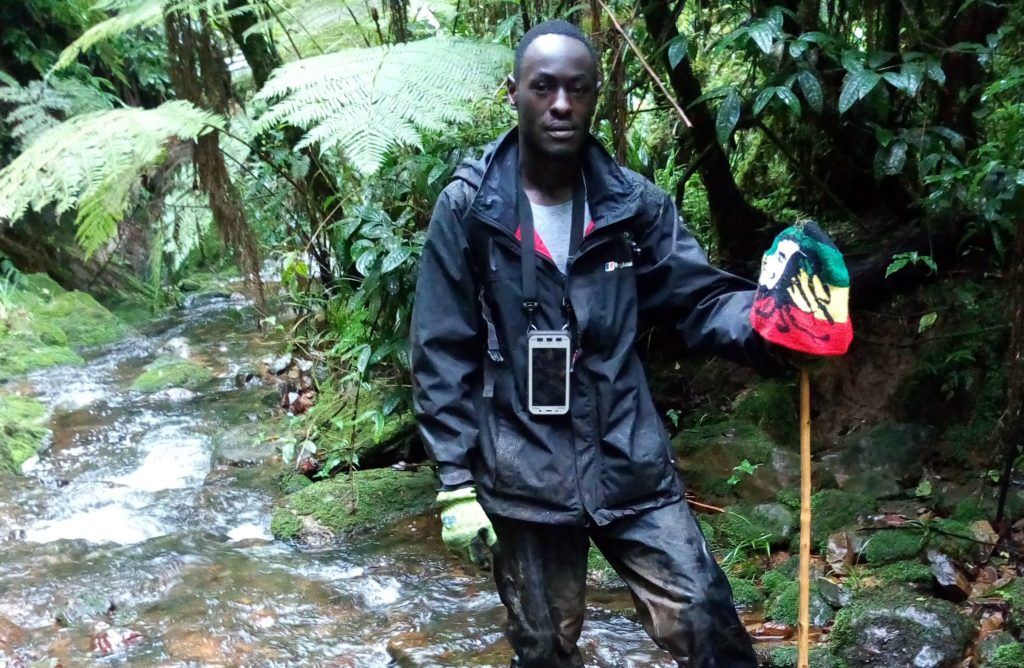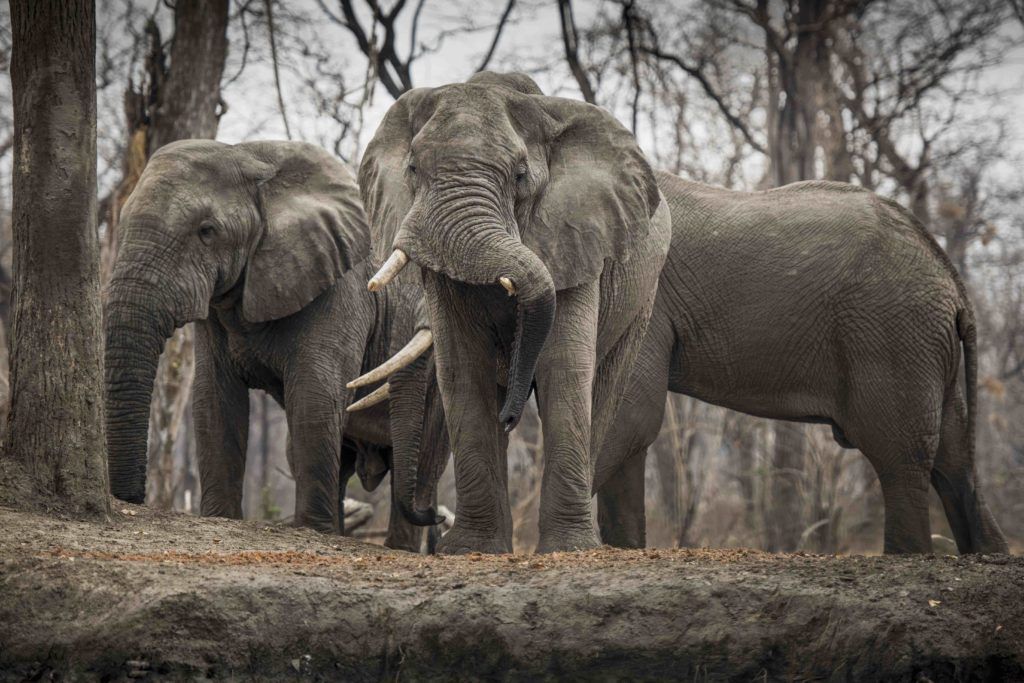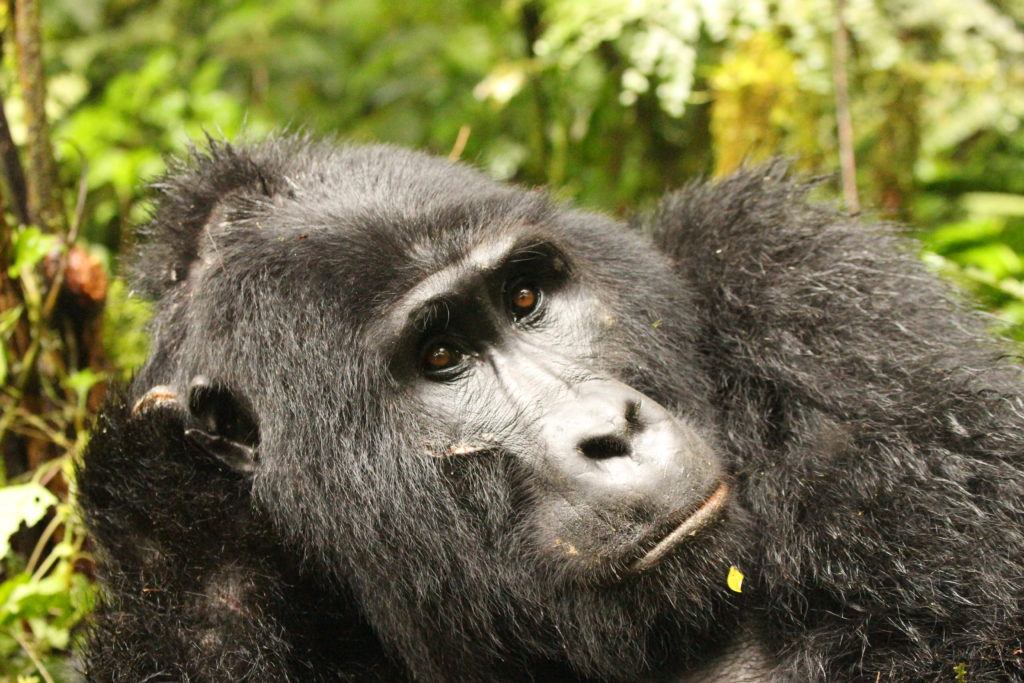In Murchison Falls National Park, Uganda, wildlife veterinarian and WCN 2019 scholarship recipient James Watuwa works quickly to free a baby African bush elephant from a snare. As the mother paces and trumpets nearby, James gently untangles the long, looped piece of wire cutting into the elephant’s hind leg and treats the wound with antibiotics. Once finished, he steps away quickly, giving the mother ample space to safely rejoin her baby. As James watches the two of them disappear into the forest, he worries about other hidden snares in the wildlife refuge. Oil exploration activities are increasing in the elephants’ habitat. With mining infrastructure degrading their natural habitat, elephants are particularly vulnerable to habitat loss and fragmentation and are susceptible to parasites and extreme stress from this kind of encroachment.
The African bush elephant (Loxodanta africana), also known as the African Savanna elephant, is the largest living land mammal. Weighing up to seven tons, these highly social animals travel in herds through forests, wetlands, woodlands, grasslands, and agricultural areas, ranging in 37 countries in southern, eastern, and central Africa. Habitat destruction and poaching pose the gravest threats. Listed as vulnerable on the IUCN Red List, elephants are rapidly disappearing from the wild. Unless urgent international action is taken, they may be gone within a generation.
Growing up in the Manafwa District of Uganda, James volunteered at Uganda Wildlife Education Centre and was mentored by animal keepers who encouraged him to consider a career in veterinary medicine. Inspired, he earned his bachelor’s degree in veterinary medicine at Makerere University Uganda, working under the guidance of senior veterinarians from Gorilla Doctors, Uganda Wildlife Authority. Last year, he started working with International Gorilla Conservation Program as a team leader for the mountain gorilla census, sweeping through forests, finding gorilla trails and night nests, and collecting gorilla fecal samples for analysis.
Now earning his MSc in Wildlife Health and Management – wildlife clinical medicine track – at Makerere University Kampala, James brings a wealth of experience rescuing snared animals, collaring elephants and lions, leading park ranger training to improve gorilla health monitoring, leading a stress hormone strip project, and working to reduce human-related threats to gorillas in the Bwindi Project by strengthening the capacity of rangers and volunteer teams to safely drive gorillas back to the park when they’re found foraging in community land. He aims to study the effect of oil exploration activities on African bush elephants, looking at variation in stress levels and helminthes (parasitic worms) burden. Knowing that community engagement is key to successful wildlife conservation efforts, James started a community-based conservation project: the Elgon Wildlife Conservation Organization.
Wildlife veterinarians are desperately needed in greater East Africa. Upon graduation, James will work as a wildlife veterinarian and conservation researcher to address some of Uganda’s most urgent wildlife and conservation priorities, such as providing accurate health diagnosis, analysis, and prevention strategies, leading de-snaring interventions, offering wildlife health core and veterinary support in protected areas and on the front lines of communities, and more. He also plans to lead the wildlife veterinary component of the comprehensive human-carnivore conflict mitigation around Queen Elizabeth National Park and foster community-based approaches to managing protected areas, for example, the participation of local communities in monitoring gorilla crop raiding.




